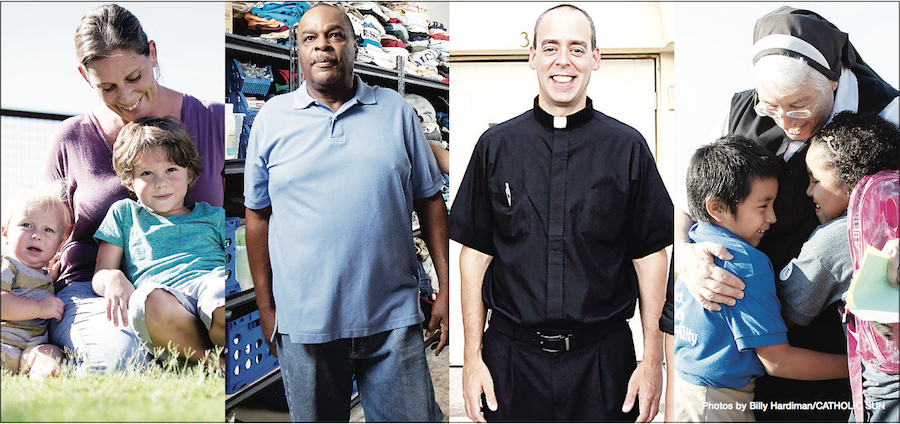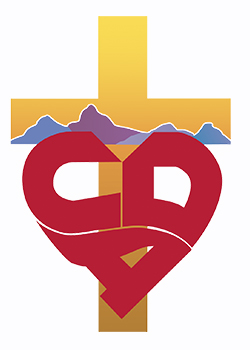
La Campaña de Caridad y Desarrollo (CDA) La CDA apoya las obras de la Diócesis de Phoenix a través de más de 70 organizaciones caritativas y comunitarias en la Diócesis de Phoenix.
Thank You y Bendiciones!
The Catholic community boosted the Charity and Development Appeal to new heights this year. The Diocese of Phoenix announced that it is releasing $10.2 million in grants to 70 organizations that help those in need throughout Arizona, including those that support women’s health and pregnancy services, the homeless, veterans, the unemployed, the elderly and more.
“The success of the Charity and Development Appeal comes from the generosity of our donors,” Lisa Wentz, director of the CDA, said. “Through a gift to the CDA, you become the heart and hands of Jesus.”
Wentz said these agencies give others hope when life is discouraging or really challenging.
The Charity and Development Appeal is the annual fundraising effort for the Diocese of Phoenix. Every year, Catholics are asked to prayerfully consider how much they will pledge in service to others, acting as the heart and hands of Jesus Christ.
“As the family goes, so goes the Church,” Bishop Thomas J. Olmsted said. “Living our faith must happen in our families. The CDA is one way to reach out beyond our own family, to be very committed to our parish and our Church.”
The CDA provides Catholic-affiliated agencies the means to continue their missions, such as educating and forming future priests, providing for religious education and Catholic education for today’s youth and adult faith formation through the Kino Catechetical Institute, among other initiatives. ✹




Crisis pregnancy centers save lives, provide women with hope
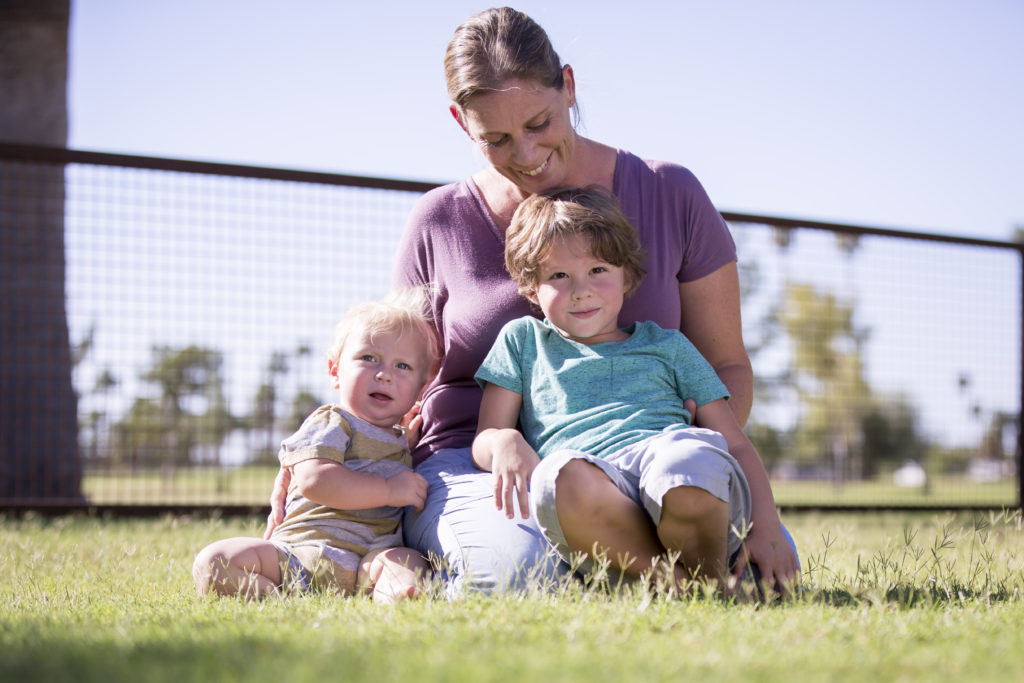

At least nine of the charitable organizations supported by the CDA have pro-life efforts as their main mission.
Life Choices Women’s Clinics serve about 7,000 women and families per year.
For Celeste and her husband of 17 years, the thought of having another child was too much for them to bear. With several other children, the family was going through a tough time two years ago and didn’t have a place to live. They often spent the night in their truck.
Celeste decided to have an abortion, and she called Life Choices Women’s Clinic. Sheila Riely, director, answered and had them come over that night.
“We didn’t have anything to eat, and she bought us food,” Celeste said of Riely. She also gave the family a place to stay that night. The next morning, Celeste had an ultrasound at the clinic.
“I saw my baby then,” Celeste said, choking back tears. “I saw her hand, and she was waving at me.”
The couple knew then they would have their baby, and Riely made sure their family had a place to live and supplies. Within three months, they saved up enough money to rent an apartment, and by the time their daughter was born, they had a stable place to live. Read more ✹
Catholic Charities helps veterans get back on their feet
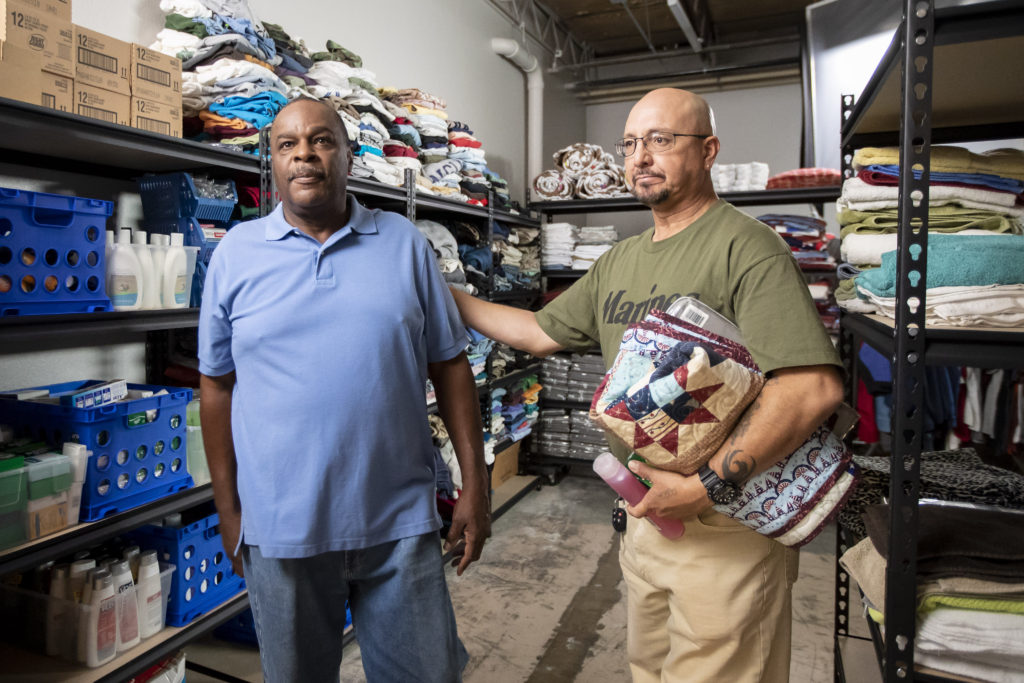

Several months ago, Richard, an Army veteran, had no housing and was camping in the woods after he left his job to take care of his father in Utah who had cancer. He had returned to Northern Arizona for a job that fell through, and without steady employment he didn’t have the money he needed for a down payment and first and last month’s rent on an apartment.
He discovered Catholic Charities Community Services’ veterans program and the agency helped him rent a cottage for six months. They gave him food and basic necessities and are helping him find a job.
“The experience was outstanding,” he said of the program. “They treat everyone as a person of value and worth.”
Catholic Charities Community Services has 23 programs including some that uniquely reach the homeless population. Since 1933, Catholic Charities has served the central and northern Arizona communities by providing life-changing services that protect and nurture children, help strengthen families and assist individuals in crisis.
“If they are in hospitals, shelters, forests or the streets — that is where we meet them,” said Darrel Reynolds, Prescott site director and senior program supervisor for Catholic Charities’ PATH (Projects for Assistance in Transition from Homelessness) program. PATH serves about 500 veterans per year.
The MANA House in Phoenix helps veterans of any branch — Marines, Army, Navy and Air Force — via its transitional living facility, career counseling and job training program. The house served 162 men last year. ✹
Seminarians start their priestly training at home in Phoenix
CDA’s largest grant for vocations outreach supports Nazareth House Seminary, a new house of formation for undergraduate seminarians. Five men now live in community alongside priests and a deacon. The idea is to more intimately model the life of a priest, allow the priests to better know the prospective priesthood candidate, wholly foster the human pillar of formation during the first two years of seminary and further equip seminarians with a clearer understanding of the greater diocesan picture.
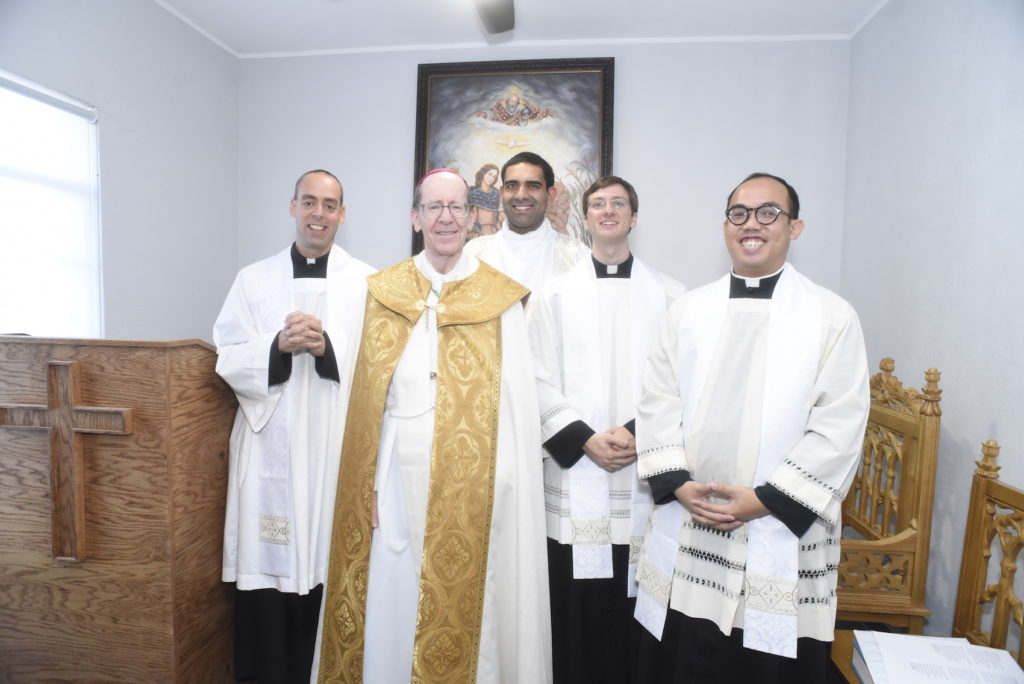

“We believe that the more the seminarians are in contact with priests of our diocese and our parishes, the more they will be able to see priesthood as it truly is: a life of prayer and service to God’s people,” said Fr. Paul Sullivan, diocesan director of vocations and rector of the seminary.
The men attend class at nearby Phoenix College and can then move on to St. John Vianney Theological Seminary in Denver once they have earned an associate degree. The Diocese of Phoenix has more than 40 seminarians discerning the priesthood. Tuition and minimal living expenses amount to $40,000 per person each year, and CDA grants heavily support them.
CDA funds also allow men discerning the diaconate to undergo formation, a seven-year process including a two-year prerequisite through the diocesan Kino Catechetical Institute. It focuses not just on the call to holiness for themselves, but if married, for their wives as well. ✹
Church helps with education, nutrition for Native Americans
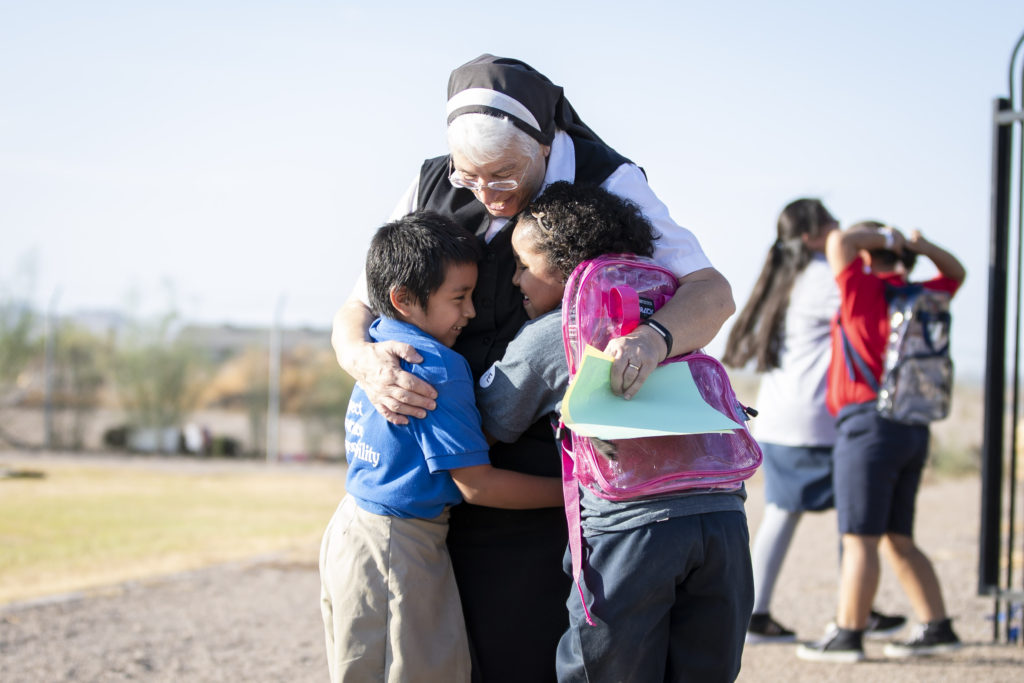

The CDA awarded needs-based grants to 14 diocesan elementary and high schools this year. St. Peter Indian Mission School in Bapchule was by far the largest recipient. It has served generations of students since its founding in 1923 with the Franciscan Sisters of Christian Charity arriving by 1935.
Sr. Martha Mary Carpenter, principal, who celebrated her golden jubilee as a religious in August, called the school “the center of evangelization.”
“Children have a way of drawing their families into their community,” she said. The community around them easily draws children and adults into gangs and drug or alcohol use, but the adjoining parish welcomed 24 people into the Catholic Church last year.
The seven sisters serving at St. Peter’s keep students rooted in their Pima culture via regular culture classes throughout the week. Sr. Martha Mary wants students grounded in their identities as people of Gila River.
She puts into practice the Catholic school ideal of forming a student’s mind, body and soul by having students run laps upon arrival in the morning. The Pima tribe has among the highest rate of diabetes in the U.S.
“If something is going on in their families, if something bad happened or they want to talk out there, they shake it out,” Sr. Martha Mary said of the morning laps. “Hope carries us forward. Hope gives us the courage to face each new day because it’s going to get better … and that’s what we teach our children — to become more like Jesus, to be people of hope, people of prayer and people of forgiveness.” ✹



